-
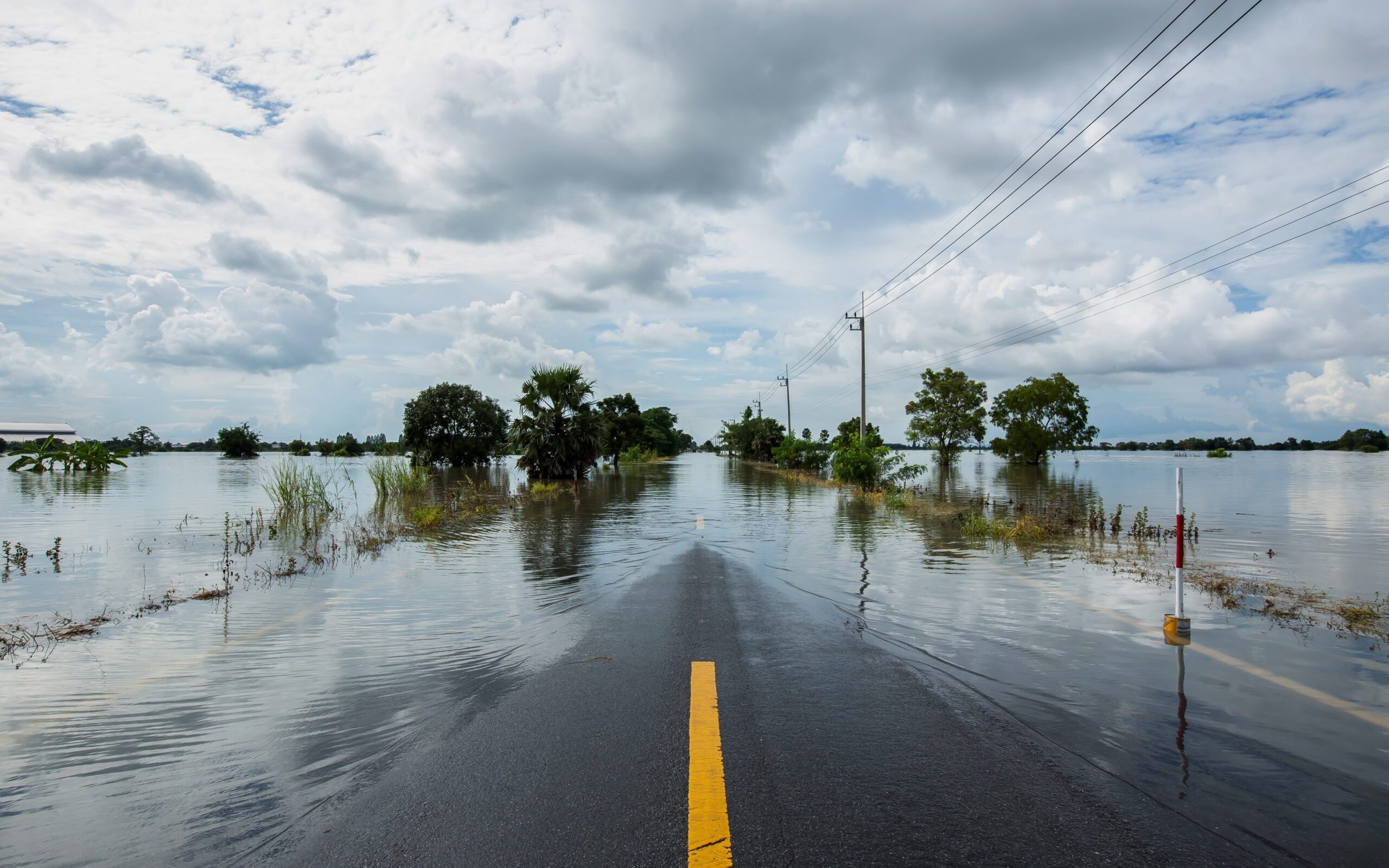
The case for early action on climate adaptation
Emerging markets could face huge costs without investing in adaptation this decade
Mobilising capital to adapt to a changing climate
Building a more climate-resilient world requires new approaches to agriculture, industry, and infrastructure. It means investing in flood defences, natural disaster early warning systems, and agriculture technology. If governments and institutions around the world turn their focus to adaptation and mobilise capital early enough, we can make emerging economies more resilient to a changing climate.
To fight climate change, we must mitigate its impact by reducing carbon emissions. However, at the same time, we must urgently adapt to protect communities from increasingly frequent and severe weather events and other climate change effects.
While the global focus of the financial markets has largely been on financing the mitigation of climate change, the urgent need to adapt to our environmental reality has attracted less attention. The Adaptation Economy shines a light on this underexplored side of the climate-finance equation.
The report examines the need for adaptation investment in 10 developing markets: Bangladesh, China, Egypt, India, Indonesia, Kenya, Nigeria, Pakistan, the UAE and Vietnam.
The case for adaptation is clear: even if the world succeeds in limiting temperature rises to the Paris goals, the 10 markets in this study could be facing an estimated cost of USD377 billion in damages and lost economic growth by 2030.
The need for adaptation will become more urgent after 2030, with a minimum estimated investment of at least USD317.4 billion required between now and 2040, rising to USD1.4 trillion between now and 2050.
The markets we call home are some of the world’s most dynamic places. At Davos 2023, we met with industry leaders – in partnership with CNBC Catalyst – to discuss growth where emerging markets could play a massive part: trade, technology, and sustainability.
Standard Chartered at Davos 2023
At Davos 2023, we met with industry leaders – in partnership with CNBC Catalyst – to discuss growth where emerging markets could play a massive part.
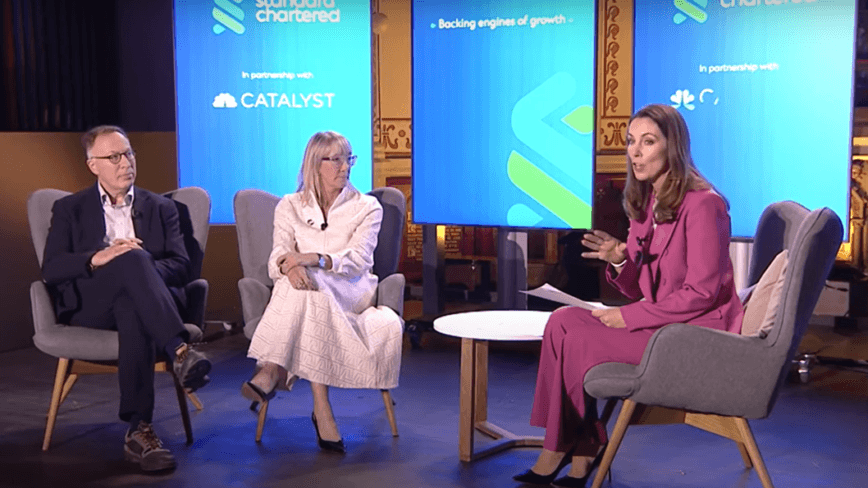
What is the Adaptation Economy?
Emerging markets face significant risks from the impact of climate change. What is the scale of investment required for them to adapt?
Marisa Drew, our Chief Sustainability Officer, discusses the adaptation economy with Jeremy Oppenheim, CEO, SystemIQ
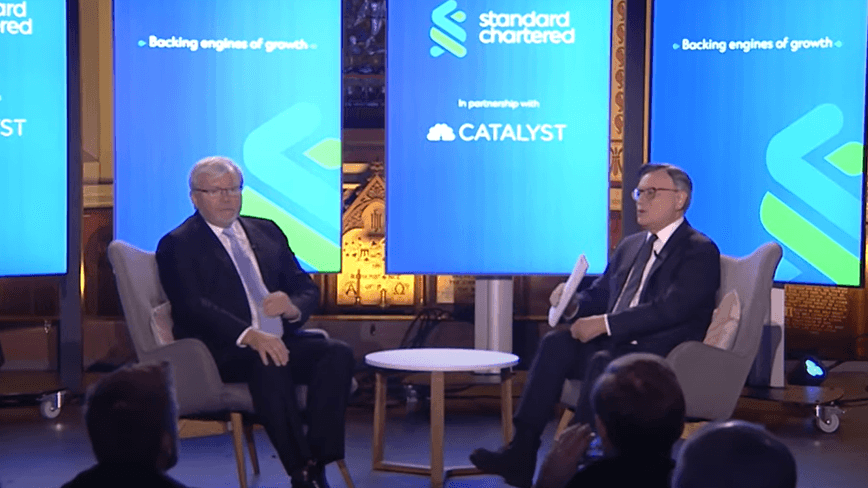
Global trade as an engine of growth
Is globalisation in decline, or just changing shape? Are global supply chains reconfiguring in the face of geopolitical and economic headwinds?
Our chairman, José Viñals, discusses global trade with Kevin Rudd, President and CEO of Asia Society and Former Prime Minister of Australia.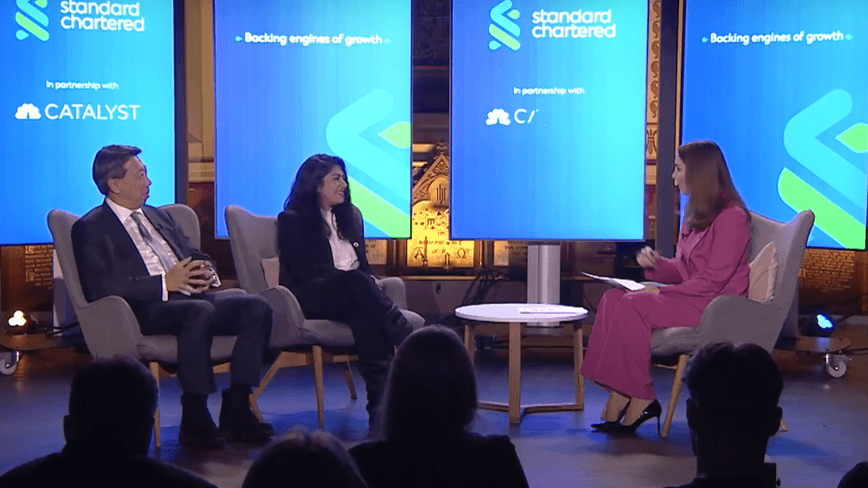
What’s next for supply chains?
The last two years have had an immense impact on global supply chains. What trends and shifts can we expect in the future?
Our Asia CEO, Benjamin Hung, Ezgi Barcenas, CSO, AB InBev and Jens Bjorn Andersen, CEO, DSV, discuss the present and future of supply chains.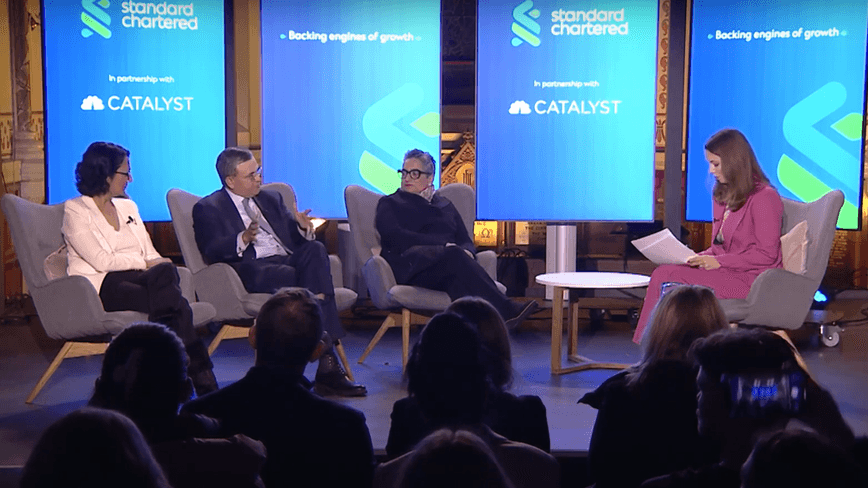
Boosting tech for inclusive growth
Technology has the power to drive inclusive economic growth and engage young consumers. How will innovation shape the future of finance?
Our Africa and Middle Easy CEO, Sunil Kaushal, Rima Qureshi, CSO, Verizon, and Shaminah Singh, President, Centre of Inclusive Growth –Mastercard, discuss.